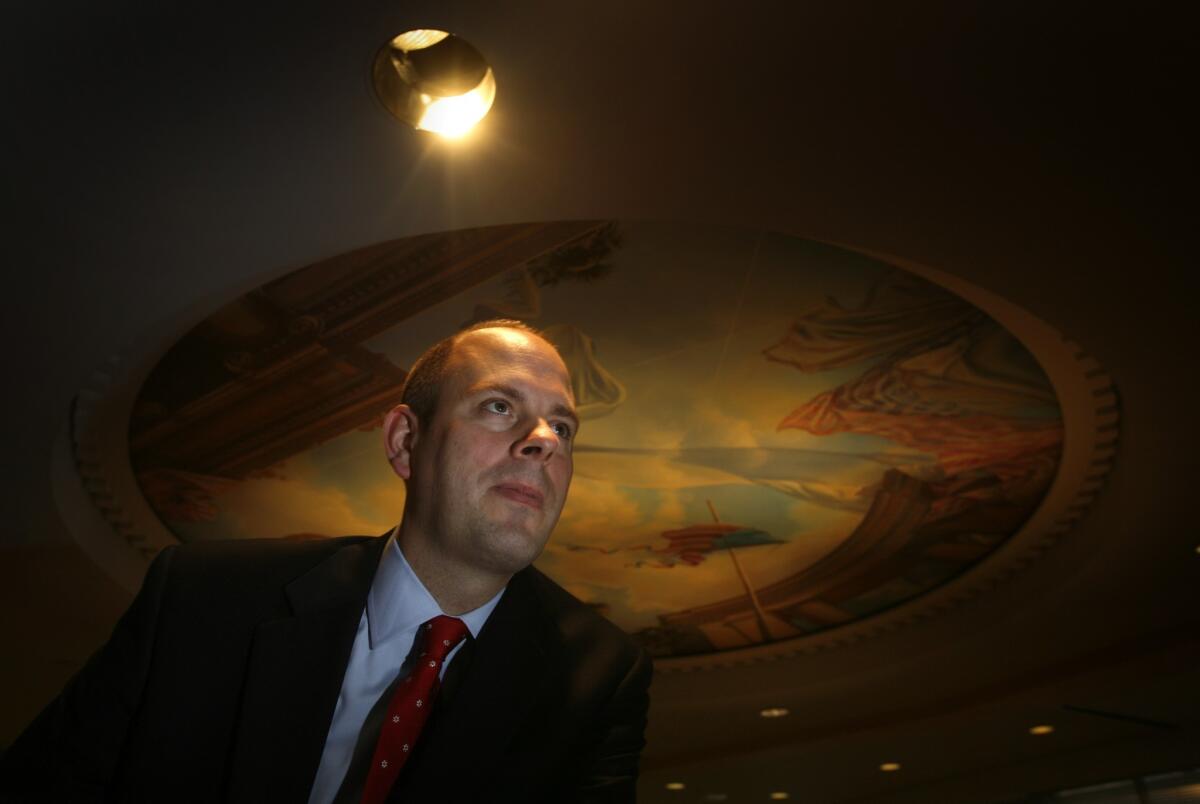SEC accuses Los Angeles firm Wedbush Securities of market-access violations

The U.S. Securities and Exchange Commission on Friday accused Wedbush Securities Inc., a Los Angeles investment firm, of illegally allowing thousands of anonymous overseas traders to make billions of dollars’ worth of secret trades.
The civil lawsuit comes on the heels of newly proposed reforms by the SEC on Thursday to make Wall Street trading more transparent and prevent rigged trading.
Friday’s legal action was filed in an administrative law court against Wedbush and two senior-level executives at the firm. Wedbush is one of the top five largest Nasdaq Stock Market traders with a monthly average trading volume of 30 billion shares, according to the lawsuit.
The two executives -- Jeffrey Bell, a former executive vice president, and Christina Fillhart, a senior vice president -- oversaw the company’s trading procedures.
“Wedbush provided market access to overseas traders without preapproval and without ensuring that they complied with U.S. law,” said Andrew J. Ceresney, director of the SEC Enforcement Division, in a statement. “We will hold Wedbush accountable for reaping substantial profits while failing to protect U.S. markets from the risks posed by these traders.”
The trades produced high fees and commissions for Wedbush, regulators said.
In a statement, company spokesman Matthew Chisum vigorously defended Wedbush against the SEC’s allegations.
“Wedbush Securities respectfully disagrees with the assertion in the SEC’s administrative complaint that the firm’s controls and procedures in this area were inadequate,” he wrote in the statement. “The firm believes that its risk management controls and procedures in this area were reasonably designed to achieve compliance with applicable regulatory requirements.”
Chisum said that the firm had discussed its processes and controls with regulators in 2011 before a market-access rule became effective and the firm had contributed to the rule-making process.
“In several respects, however, the SEC now seeks to impose additional regulatory requirements retroactively… without giving fair notice of its expectations in advance,” he said.
Regulators, in court documents, say that Wedbush knew as early as 2009 that its lax trading business procedures posed “particular regulatory and compliance risks.”
The SEC later secured a judgment against a Latvian trader who had profited from trading through two Wedbush “sponsored access firms” that allowed the trade to bypass Wedbush systems. The sponsored access firms allowed customers to send orders directly to exchanges and other trading venues.
The lawsuit specifically alleges that Wedbush and its two executives violated several market-access rules from July 2011 through at least January 2013.
Some of the allegations include failing to maintain direct and exclusive control in trading platforms that allowed customers to send trading orders. Some customers were able to use third-party platforms to make trades. The company, according to regulators, also failed to restrict trading access solely to people that firm had pre-approved and authorized.
“Violations of the market access rule pose significant risks to the orderly functioning of the U.S. securities market,” the lawsuit said.
SEC Chairwoman Mary Jo White on Thursday outlined new rules and regulations that aim to boost market stability and fairness, improve transparency and improve markets for smaller companies.
Among the proposed measures is a rule intended to curb aggressive, short-term tactics when the market is especially volatile. White also wants to see private high-frequency traders registered as dealers, a change that would bring them under SEC oversight.
White expressed concerns about transparency and directed particular aim at “dark trading venues,” which now account for up to 35% of trades.
Unlike public stock exchanges, dark venues are private, off-market platforms that offer limited information about participants or how they operate.
The Associated Press contributed to this report.
More to Read
Inside the business of entertainment
The Wide Shot brings you news, analysis and insights on everything from streaming wars to production — and what it all means for the future.
You may occasionally receive promotional content from the Los Angeles Times.











